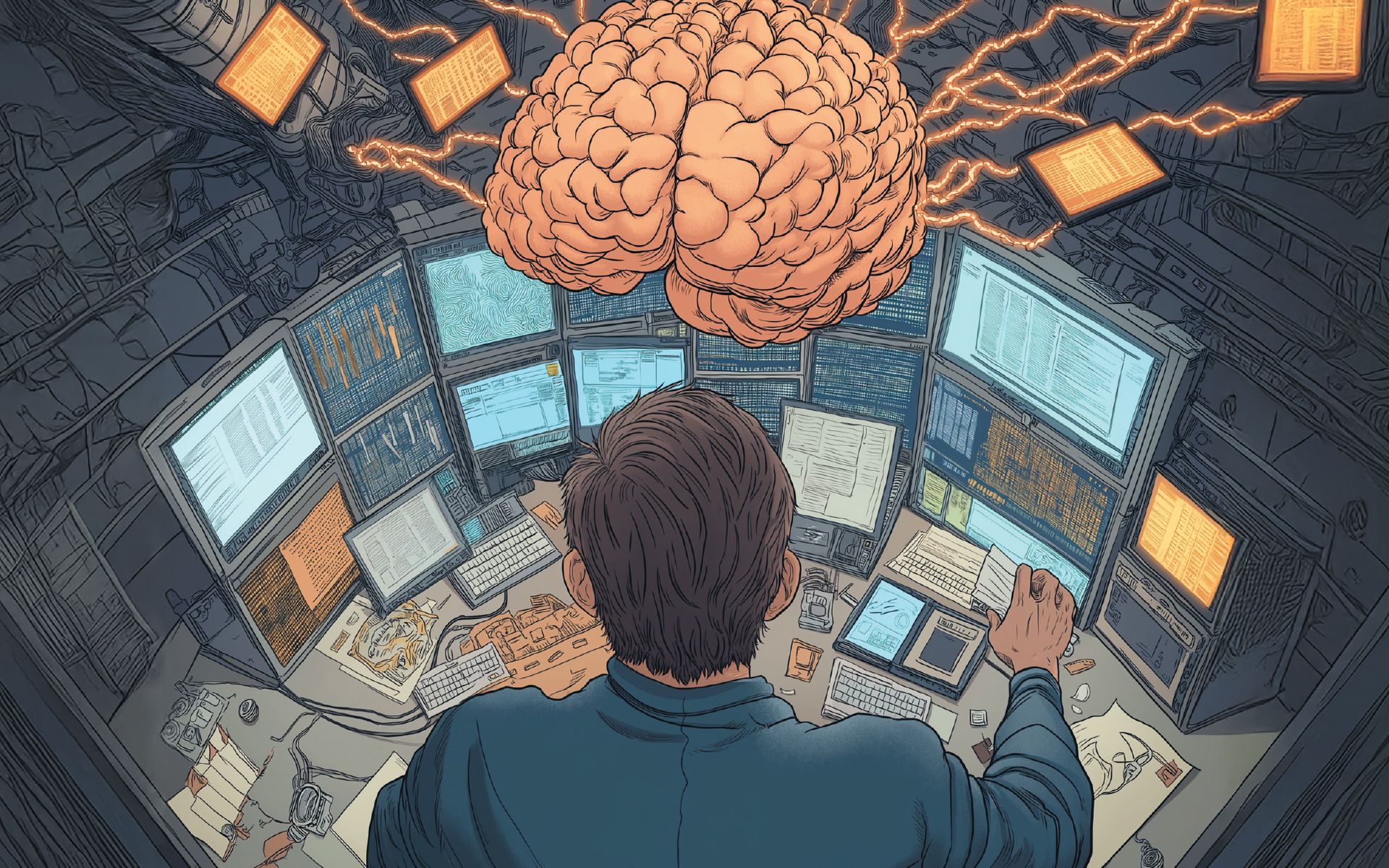Is Multitasking Really Possible?

In This Article
-
Can we easily handle multiple tasks and switch between them without sacrificing time and accuracy?
-
Multitasking, which seems like a means of efficiency on the surface, ultimately becomes more costly timewise and involves more error
Especially now that a wide array of technology is at our disposal, we strive to be more efficient at work or school. We also try to squeeze the most out of our leisure time by chasing various forms of entertainment at once. For this, most of us multitask (or at least claim to do so). Put simply, multitasking is completing multiple tasks simultaneously, such as listening to the news while reading a book. When we multitask, we may be filled with a sense of pride, since it’s usually seen as a sign of high intelligence. Being such a popular phenomenon, the excruciating question is whether multitasking is really possible or not.
Naturally, this article avoids the highly scientific aspects of this neurologically complex topic and aims to answer this question for the layperson. Following this approach, the term ‘multitasking’ is used in this article for tasks that necessitate conscious thought. For example, walking and talking at the same time is not considered multitasking, since walking does not require conscious thought; rather, it is accomplished through “muscle memory.” The definition also excludes activities that are not simultaneously going on with another activity, but exclusively on their own time in a day, week, or month. Therefore, dividing the time in a day among multiple activities, such as spending an hour reading, another hour watching TV, still another writing, and perhaps repeating each of these tasks on its own time in the same day is not considered multitasking.
Going back to our vital question: is multitasking really possible? In other words, can we easily handle multiple tasks and switch between them without sacrificing time and accuracy? To answer this question, we need to first understand the brain’s executive control over cognitive processes. This executive control can be seen as the control tower that orchestrates the brain’s countless varied cognitive operations while completing tasks. Moralis and Dinan (2022) list them as including, but not limited to, planning, self-monitoring, accessing working memory, time management, and organization. For their study, Rubinstein, Meyer, and Evans (2001) proposed a theoretical model that divided these control processes into two main stages involved in task switching: goal shifting and rule activation. They defined goal shifting as the stage that keeps track of the individual tasks and informs the other components of the system about what the current task is. In other words, this is the stage in which one realizes where they stand in the sequence of tasks at hand, and initiates, executes, and terminates individual tasks. The rule activation stage followed goal shifting and was defined as resetting the mind by first disabling the prior task’s rules and then turning on the new task’s rules. For example, if we switch from playing tennis to basketball, the objectives, rules, strategies, and a bunch of other things need to change in our mind. These researchers’ findings from a series of experiments supported the model that has goal shifting and rule activation stages for task switching. While a number of factors such as task familiarity and rule complexity influenced the magnitude of task switching costs, results consistently showed that there was always a price to be paid in terms of time and error rate when switching between tasks.
While the cost per switch may be relatively small, they can add up to large amounts when people switch back and forth repeatedly between tasks. Therefore, multitasking, which seems like a means of efficiency on the surface, ultimately becomes more costly timewise and involves more error (“Multitasking: Switching costs,” 2006). Meyer, one of the three researchers mentioned above, says in an interview on their research, “People in a work setting who are banging away on word processors at the same time they have to answer phones and talk to their co-workers or bosses – they are doing switches all the time. Not being able to concentrate for, say, tens of minutes at a time, may mean it’s costing a company as much as 20 to 40 percent” (Anderson, 2001).
One can easily find many studies on multitasking, all of which document the inefficiency of multitasking. This is because our brains are wired to perform singular tasks rather than multitask. Despite its superb structure and highly sophisticated functions that we have only begun to understand through advances in brain research, the human brain is curiously not designed for multitasking. In other words, we are expected to make the most out of our experiences that require conscious thought rather than try to become an efficient machine-like human that processes information superficially in a very short amount of time. Doesn’t this design make total sense for the only species in the world that is capable of contemplating and meaning-making about the entire existence? From another angle, multitasking takes a heavy toll on our personal, social, professional, and educational lives. This is another crucial topic in and of itself that deserves a separate discussion in another article.
References
- Anderson, P. (2001, August 5). Study: Multitasking is counterproductive. CNN. http://edition.cnn.com/2001/CAREER/trends/08/05/multitasking.focus/
- Moralis, S. & Dinan, S. (2022, February 27). The myth of multitasking. Psychology Today. https://www.psychologytoday.com/us/blog/the-therapeutic-perspective/202202/the-myth-multitasking
- Multitasking: Switching costs. (2006, March 20). American Psychological Association. Retrieved July 5, 2024, from https://www.apa.org/topics/research/multitasking#:~:text=Although%20switch%20costs%20may%20be,end%20and%20involve%20more%20error
- Rubinstein, J.S., Meyer, D.E., & Evans, J.E. (2001). Executive control of cognitive processes in task switching. Journal of Experimental Psychology: Human Perception and Performance, 27(4), 763-797. https://doi.org/10.1037/0096-1523.27.4.763









